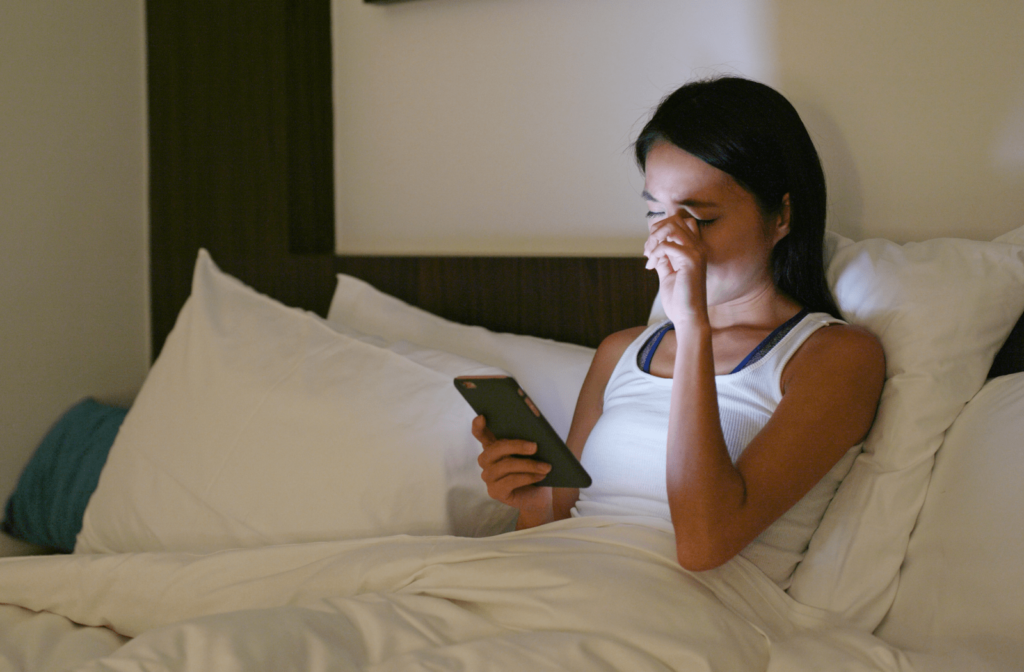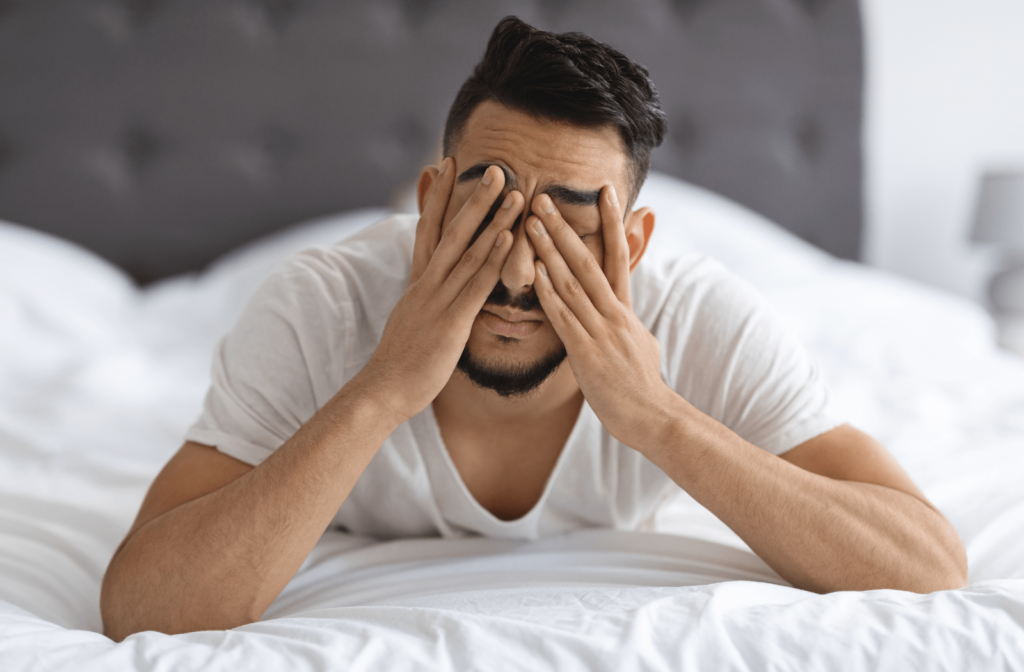Dry eyes and dry eye syndrome, while similar in symptoms and sound, are very different things.
Dry eyes can happen to any person for a number of reasons—say the air conditioning inside was too strong—and usually resolves on its own.
Dry eye is a condition that causes ongoing discomfort and dryness in the eyes, usually due to tear production issues.
Fortunately, there are treatments for both conditions! You deserve to see comfortably.
What Is Dry Eye?
Dry eye is a common eye condition that causes your eyes to feel uncomfortable and irritated. Usually, this is because your eyes don’t produce enough tears or your eyes produce poor-quality tears. It can impact your ability to function day-to-day if left untreated.
Signs and Symptoms
- Blurry vision
- Watery eyes
- Light sensitivity
- Eye fatigue/redness
- Difficulty driving at night
- Difficulty wearing contacts
- Stringy mucus in/around eyes
- Stinging, burning, or scratching sensation
Causes of Dry Eye
- Aging
- Allergies
- Eyelid issues
- Hormone changes
- Certain medications
- Not blinking enough
- Vitamin A deficiency
- Wind, smoke, or dry air
- Previous eye injury/surgery
- Decreased tear production
- Increased tear evaporation
- Certain diseases/conditions

Is Dry Eye the Same as Dry Eyes?
Dry eye syndrome is an eye condition that can develop over time and often needs more medically-focused treatment. Dry eyes can happen to anyone at any time, but can usually be resolved with home remedies.
Nocturnal Lagophthalmos
Nocturnal lagophthalmos is a condition that makes you unable to fully close your eyelids when you’re sleeping. Doctors believe this is primarily caused by weakness of the seventh cranial nerve, or the facial nerve.
This weakness is usually attributed to:
- Incomplete lid closure
- Head or jaw trauma
- Bell’s palsy
Medications
Both prescription and over-the-counter medications can cause dry eyes. Some common medications include antihistamines, antidepressants, and acne medications. If you experience dry eyes and believe it could be linked to certain medication, talk to your primary physician.
Digital Eye Strain
Excessive computer use can lead to dry eye over time. When we are staring at a screen, we blink about half as much as we should. As a result, your eyes can feel dry, uncomfortable, and fatigued.
Use the 20-20-20 rule. Every 20 minutes, take a 20-second break and stare at something 20 feet away. You can also keep artificial tears on you if you spend a lot of time on a screen at work.
Vitamin A Deficiency
Vitamin A is critical to healthy eyes. A lack of vitamin A can affect how your eyes produce tears, which can lead to dry eye. To prevent vitamin A deficiency, or to help address it, include these foods in your diet:
- Eggs
- Carrots
- Fish
- Spinach
- Broccoli
- Bell peppers
Autoimmune Conditions
There are certain autoimmune conditions that can cause dry eye symptoms, such as:
- Arthritis
- Lupus
- Diabetes
- Sjögren’s syndrome
Talk to your doctor about your dry eye symptoms to properly determine if they’re related to another condition.
Allergies
Allergies can make your eyes feel dry, but can also lead to dry eye syndrome. Seasonal allergens can enter your home through open windows and doors, vents, and air conditioning units. Anti-allergy eye drops can help alleviate your symptoms.
Dehydration
You may be experiencing dry eye symptoms as a result of not drinking enough water. You should drink 3 to 4 litres each day to keep your body properly hydrated.
Thyroid-Related Eye Symptoms
Hyperthyroidism and other thyroid-related conditions can affect your ability to close your eyes fully while asleep. This can lead to dry eyes in the morning.
Home Remedies
You can try treating your dry eye symptoms at home with some easy remedies, including:
- Warm compress: apply a warm compress (i.e. cloth soaked in warm water) over your eyes to help unclog oil glands
- Washing your eyelids: use warm water & baby shampoo to scrub your eyelids gently
- Use a humidifier: add a humidifier to your home to keep the air moist
- Drink water: it’s important to stay hydrated through the day (approximately 8 to 10 glasses)
- Use 20-20-20: take a break every 20 minutes for 20 seconds & stare at something 20 feet away
- Wraparound eyewear: protective eyewear, like wraparound sunglasses, can protect your eyes when outside
- Use an air filter: air filters can help cleanse the air in your home
Medical Treatments
There are a number of medical treatments that can be used for dry eye, such as:
- Prescription eye drops
- Punctal plugs
- Tear-stimulating medication
- Specialty contact lenses
- Eyelid massage
- Meibomian gland expression
- Intense-pulsed light therapy
When To See a Doctor
There are a variety of treatments available to treat dry eye. If you experience ongoing or worsening symptoms (despite home remedies), book a consultation with our team. We’ll get to the root of your symptoms and help find a treatment that fits you.



